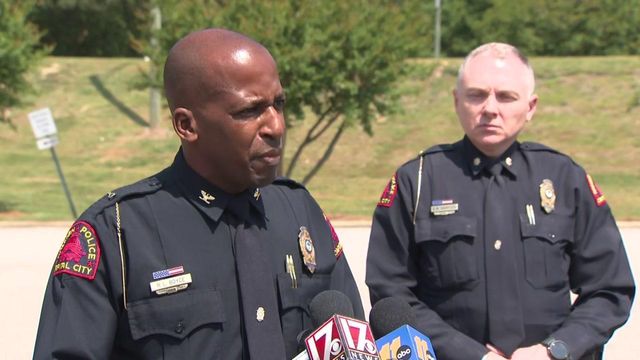Military vets push for medical marijuana
Josh Biddix is an Iraq war veteran. He came home from deployment with post-traumatic stress disorder and a badly injured back. Both conditions deteriorated when he returned to work in law enforcement.
“There'd be days, just … almost tears, just hurting, and nothing you could do,” Biddix told WRAL News.
He went through three years of treatment and pain management at the VA hospital. At one point, he was on 23 different medications. Nothing was working.
“I have personally looked down the barrel of my own service weapon,” Biddix said. “The neurologist at the VA put me on some muscle relaxers they use for Parkinson's and ALS patients, that type stuff. And I seriously could not get out of the bed. Like it was just, you're just laying there, staring at the ceiling. That's just not worth it.”
Biddix says several of his doctors suggested trying cannabis. He says it works better for him than prescription medication without the debilitating side effects.
“When you have a severe flare-up, or you're having just a bad day with, you know, your mood and temper, which is all related to [post-traumatic stress],” Biddix said, “it can give you that relief to kind of give your mind time to reset, your body reset, and you're back to fully functional within just, no time really.”
Right now in North Carolina, the only way Biddix can get the drug he credits with keeping him stable is by committing a misdemeanor. He’s willing to take that risk, but he says he shouldn’t have to.
“I'll be danged if I’m going to lie around and just suffer,” he said. “Days where you can barely leave the house or have to use a cane to walk to the mailbox, that type of stuff. And don't get me wrong—it's not every day. But those days…those days are bad.”
Last summer, Biddix came from his home in Cleveland County to the legislature to speak in favor of medical marijuana. He was one of several military veterans who told their stories at a committee hearing on Senate Bill 711, which tentatively passed the Senate Thursday on a 35-10 vote.
Military veterans with post-traumatic stress disorder have been among the most vocal proponents for the legalization of medical marijuana in North Carolina, and their advocacy has had a big impact on some Senate lawmakers. In Thursday’s debate, state Sen. Kirk deViere, a military veteran himself, referenced it as he thanked the bill’s sponsors and supporters on their behalf.
“We talk about never leaving a fallen comrade,” deViere, D-Cumberland, said. “We've left many military people that suffer from PTSD, many that we heard—warriors—that came before us in committee meetings, that talked about the pain that they had. And this is one way that we can help them.”
Senator Kathy Harrington, R-Gaston, agreed. “I've heard some of the most compelling and passionate testimony that I've ever heard in committee over the Compassionate Care Act from veterans and former law enforcement who suffer from PTSD,” she said. “I was brought to tears in one committee about a year ago from some of the most painful and difficult testimony I've ever listened to.”
The bill still has to pass the House. Legislative leaders have said they want to wrap up their session for the year by July 4. House Speaker Tim Moore said Thursday he doesn’t think House Republicans will be willing to take it up before then.
"I want to see where our folks are on it,” Moore, R-Cleveland, told reporters. “That one has just kind of been thrown down, and I don't see an appetite to take that up in the shorter session. As far as the long session, I won't say one way or the other."
Biddix and other veteran advocates are planning to return to Raleigh Tuesday to plead their case to House lawmakers, hoping they can once again change enough minds on the matter to push the bill to a vote on the House floor.
“It’s just long overdue. It's a common-sense issue. It's a compassion issue. It's an empathy issue. And we're not talking about recreational. We're talking about people that are going to be suffering one way or another,” Biddix said.
WRAL state government reporter Bryan Anderson contributed to this story.









